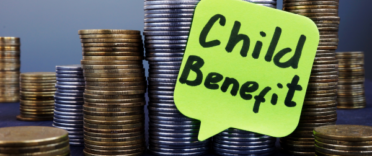
What is Child Benefit?
Child Benefit is a state-funded payment that carers of children aged up to 16 years old (20 years old if they are in approved education or training) can claim. Your household will receive a weekly amount of £24.00 for your eldest or only child and a further £15.90 for each child thereafter. These rates will increase to £25.60 and £16.95 respectively from 6 April 2024.
How does the High Income Child Benefit Tax Charge work?
A 'high-income child benefit tax charge' applies if you earn more than the earnings threshold that is set for child benefit payments. Although you can claim the full amount of child benefit for each of the children you care for regardless of your earnings, you will have to pay a High Income Child Benefit Tax Charge based on the amount that you earn. This begins to negate your child benefit payments.
What has been announced?
Currently, the child benefit earnings threshold is £50,000 per year but it will be increased to £60,000 from 6th April 2024, meaning that if either parent or carer earns more than £60,000 individually, the High Income Child Benefit Tax Charge will apply. The earnings threshold actually refers to an individual's adjusted net income which is equal to their total taxable income before any allowances but after certain reliefs (including pension contributions). So for many people their adjusted net income is simply equal to their gross pay.
The amount of tax charged will still depend on how much you exceed the threshold and will still be applied on a tapered basis and will still never exceed the amount of child benefit you receive. Previously, the tax charge was tapered between £50,000 and £60,000 so when earning £60,000 or more the tax charge would negate the full amount of any child benefit received. Under the new announcement, the tax charge will be tapered between £60,000 and £80,000 meaning that you'll have to have an adjusted net income of £80,000 or more before the tax charge will negate the full child benefit paid to your household.
Although the Chancellor admitted that the income thresholds applied to individuals rather than households remain unfair, he would consult on the reforms needed to tackle this by 2026.
What does the increased income threshold mean for you?
If you receive child benefit payments you should check your annual pre-tax earnings against the new thresholds. If your earnings are between £50,000 and £60,000, you may find that you no longer have to pay a tax charge on the child benefit that you receive. Also, if you earn over £60,000, you may have previously opted out of receiving child benefits as the tax charge would have nullified the benefit amount but the new limits may mean that you now stand to benefit.
Below we have calculated the net child benefit amount received based on the income thresholds of 2023/24 and the net amount a household will get based on the new thresholds for 2024/25.
| Individual earnings for either carer do not exceed: | Annual Child Benefit for two children after tax charges 2023/2024 | Annual Child Benefit for two children after tax charges 2024/2025 |
| £50,000 | £2,074.80 | £2,212.60* |
| £55,000 | £1,037.80 | £2,212.60* |
| £60,000 | £0 | £2,212.60* |
| £65,000 | £0 | £1,659.45 |
| £70,000 | £0 | £1,106.30 |
| £75,000 | £0 | £553.15 |
| £80,000 | £0 | £0 |
*The level of Child Benefit increases in April 2024.
You can calculate the amount of child benefit your household can claim and how much tax, if any, will be charged using the Child Benefit Tax Calculator. The calculator will return results based on the 2023/24 thresholds until April when the new thresholds will apply.
Next steps
The changes mean that from April 2024 those who previously registered for Child Benefit but earned over £60,000 and so opted out of receiving payments, to avoid having to file a tax return and pay the High Income Child Benefit Tax Charge, will now want to consider restarting their Child Benefit payments if they earn less than £80,000 per tax year.





